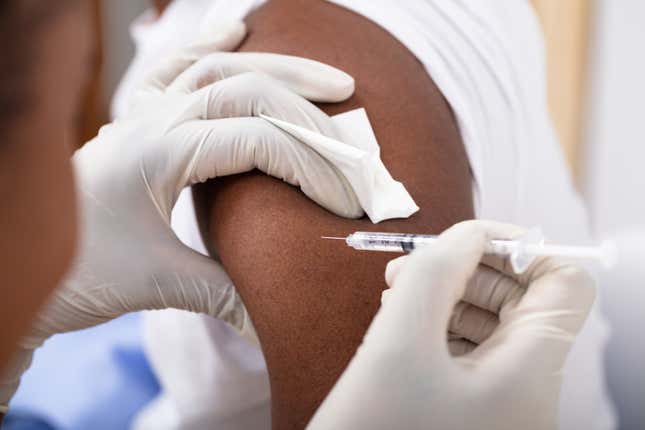
After 2 years, COVID-19 has not gone anywhere and we are still in the middle of a pandemic that has taken hundreds of thousands of lives in the United States, with a disproportionate number of those lives being Black.
Despite that fact, Black people have still been hesitant in this country about getting the coronavirus vaccine even when Dr. Fauci and other medical experts have urged everyone to get vaccinated as quickly as possible.
But, in a study from researchers at The Ohio State University, Black people who were initially hesitant about getting the COVID-19 vaccine were more likely than white people to come around to getting the vaccine as the pandemic continued and view it as essential protection, according to Ohio State News.
Ohio State News has more on the details of the study:
The study followed the same group of Americans over time, surveying them about their views regarding the pandemic. This approach allowed the researchers to measure how individual and group perspectives shifted during a time when the world was gaining new information about both the virus and the vaccine by the day.
“As availability of the vaccine approached, and then as it became available, we were hearing as part of the national conversation this assumption that Black Americans would be less likely to seek vaccines because of well-earned distrust shaped by racism,” Padamsee said.
“But we also know that Black Americans are highly motivated to take care of themselves and their communities,” she said.
Data was collected in seven waves from an initial group of 1,200 participants (response numbers decreased modestly as the study progressed). The surveys began before vaccines became available in late 2020, and ended in June 2021. Participants were asked about their likelihood of getting a vaccine and about their beliefs regarding the safety, efficacy and need for the vaccine.
About 38% of Black participants and 28% of white participants were hesitant at the start of the study. By June, 26% of Black participants and 27% of white participants were hesitant. The data pointed to changes in beliefs about the protections the vaccine offered as a key explanation.
“The data suggest that Black communities were particularly focused on ways to protect themselves and their communities as more evidence emerged that vaccines were effective and safe,” said study co-author Kelly Garrett, professor of communication at Ohio State.
Some of the hesitancy comes from past trauma such as the Tuskegee Syphilis Study and the unethical use of cancer cells from Henrietta Lacks. Those incidents have added to the Black community’s distrust of the medical field and provide important context for understanding vaccine hesitancy in Black communities, researchers said in their study, according to Ohio State News.
But it could be because Black people have less access and availability to get the vaccine due to their circumstances.
More from Ohio State News:
“I expected that the same qualities that lead Black communities to be cautious about a new vaccine would lead them to accept the vaccine once they gathered more information. The unifying theme is protection. Black Americans want to protect themselves and their communities,” she said.
“Any story that sounds like ‘Black people don’t want to take care of themselves as much as white people’ sounds immediately suspicious to me. That story is generally wrong – it’s that something is standing in their way.”
The study from Ohio State researchers was supported by the National Science Foundation, according to Ohio State News.

